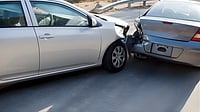Get Roadtrip Ready: Key Vehicle Maintenance and Car Insurance Tips
motor
Holidays like December and Easter in South Africa are the perfect time for a road trip, whether it's a short outing with friends or a cross-country journey with your family. While the weather is mostly pleasant, there are many other things you need to prepare for when hitting the road.
Having Car Insurance and performing essential vehicle maintenance are non-negotiable when planning your next trip. The team at Auto&General Insurance have created this guide outlining common challenges you may face and how you can prepare for them. We want to ensure that you don't go from road trip to no trip.
Some of the most common road trip challenges and how to prepare for them
You've got the route planned, playlists updated, and regular breaks scheduled. But have you done everything to ready your car for a long trip? Every drive has risks, but road trips have unique challenges, especially when far from help.
1. Road conditions
South African roads lead to stunning landscapes but often suffer from poor maintenance, especially on less-travelled routes. Uneven surfaces, gravel, and potholes can put tyres, suspension, and rims at risk. Travelling in low-light conditions or over wet roads only makes these conditions more hazardous.
You can prepare for poor road conditions without difficulty:
-
Apps like SANRAL, Waze, Google Maps, and the AA's website help identify roadworks, poor conditions, and potholes. Many of these rely on community reporting, so they might not include all dangers.
-
Ensure your tyres are in good condition - check your spare tyre before leaving. Also check your tyre tread so that you have sufficient grip on the road for optimum safety.
-
Always travel with a jack and basic toolkit for emergencies.
-
Check that your Tyre and Rim Insurance policy is up to date.
"Considering that smooth and damaged tyres cause tyre blowouts and impair a vehicle’s braking system, leading to road accidents, injuries and death, and that an insurance company may reject an accident claim as a result of unroadworthy tyres, it is vital that drivers ensure that the tyres on their vehicles are in good order."
Garth Johnson 1, CEO of DEKRA Automotive
2. Wildlife and livestock on the roads
Wildlife isn't limited to rural areas or surrounding game reserves. Stolen or damaged fencing can see cattle or horses wandering onto any main route, while a mob of guinea fowl is a common sight on inland roads. Colliding with an animal on the open road can cause severe vehicle damage.
-
Drive at a safe speed when you’re in areas marked with wildlife crossing signs.
-
Use extra caution at dawn and sunset, peak times for wildlife activity.
-
Use high beams where appropriate to increase visibility.
-
Keep your Vehicle Insurance active and save your policy and contact details on your phone, or download your Car Insurance app.
3. Vehicle breakdowns and other complications
Breakdowns happen unexpectedly, even with a well-maintained vehicle, leaving you stranded far from help. Common issues like overheating, flat batteries, and brake problems can quickly derail your trip, especially in remote areas with limited services.
Routine maintenance, extra water, an emergency kit, and spare fuel (for remote areas) can prevent breakdown delays. Check that your Car Insurance includes Road Assist and save the number for this service on your phone. You can also request an Assist service via the A&G app. Some vehicle issues you might encounter include:
-
Engine overheating: High engine temperatures can cause overheating, particularly in hot climates or while driving up steep inclines. Check coolant levels and ensure your radiator is working properly before any long trips. Carry a spare bottle of coolant for emergencies.
-
Battery failure: Batteries can fail without warning, especially if they’re old or undercharged. Before your trip, test the battery and ensure it is fully charged. A portable jump starter can be a lifesaver if the battery fails mid-trip, and having Vehicle Warranty with Road Assist across South Africa provides extra peace of mind.
-
Brake problems: Worn brakes reduce stopping power and increase accident risk. Have your brakes inspected for wear and replace pads if necessary. Brake fluid levels should also be checked and topped up.
"Like oil, brake fluid loses its effectiveness over time but when to change it varies by type of car, driving conditions and the manufacturer’s recommendations. Signs you should get to an accredited workshop to have your brake fluid checked immediately is if the fluid has a burnt odour, is not transparent or is a lower level than it should be."
Dewald Ranft 2, Motor Industry Workshop Association (Miwa)
-
Electrical failures: While modern vehicles have advanced electronics, even older cars can experience electrical issues with lights, windows, or dashboard controls. Have a basic knowledge of which fuses control key systems and keep some spare fuses and bulbs in your emergency kit.
-
Transmission problems: Difficulty shifting gears or unusual noises may indicate a transmission issue. This might not be something you can fix yourself, so arrange for a vehicle check-up before any long trips.
-
Suspension issues: Poor handling and excessive bouncing may point to suspension wear, but bad road conditions can also damage the suspension. Test the suspension by pressing down on each corner of the car. If it bounces more than once, it may need inspection. Drive with extra care on rough, uneven roads.
-
Fluid leaks: Leaks from the engine or transmission can cause damage if not addressed. Check for leaks under the car and inspect fluid levels regularly, and always before a long trip. Leaks should be taken care of as soon as you notice them.
4. Theft and hijacking
Vehicle theft and hijacking are all too common risks in South Africa, with 96 cars stolen every day 3. Stops in unfamiliar areas can make travellers more vulnerable.
Always park in well-lit, secure areas, ideally within view of surveillance cameras in main cities. Regardless of where you are, keep valuables out of sight and lock your car even during short stops. Installing safety film on car windows can reduce the risk of smash-and-grab incidents. Check that your Vehicle Insurance includes theft and hijacking cover, along with cover for windshield and glass damage.
5. Accidents and collisions
Accidents are common, especially in busy areas or on highways during holidays. Distractions, fatigue, or poor road conditions can lead to costly accidents.
Plan rest stops to stay alert. Always maintain a safe following distance, obey the rules of the road, and drive at safe speeds adapted to current conditions. Consider Comprehensive Car Insurance to cover accidental damage and third-party costs, sparing you from repair worries on your trip.
6. Roadblocks and police checks
During peak travel seasons, authorities increase roadblocks to monitor traffic and enforce safety laws.
Ensure your vehicle license is valid and visible, and carry your driver’s license. If you’re towing, ensure that your load complies with legal limits.
Get a Car Insurance quote
The difference between a challenging journey and a seamless adventure is often being well-prepared. Vehicle maintenance and checks are key to this, along with the right Car Insurance. Get a personalised Car Insurance quote in minutes, or contact our team to have your questions answered, and ensure your next journey is safe, secure, and worry-free.








